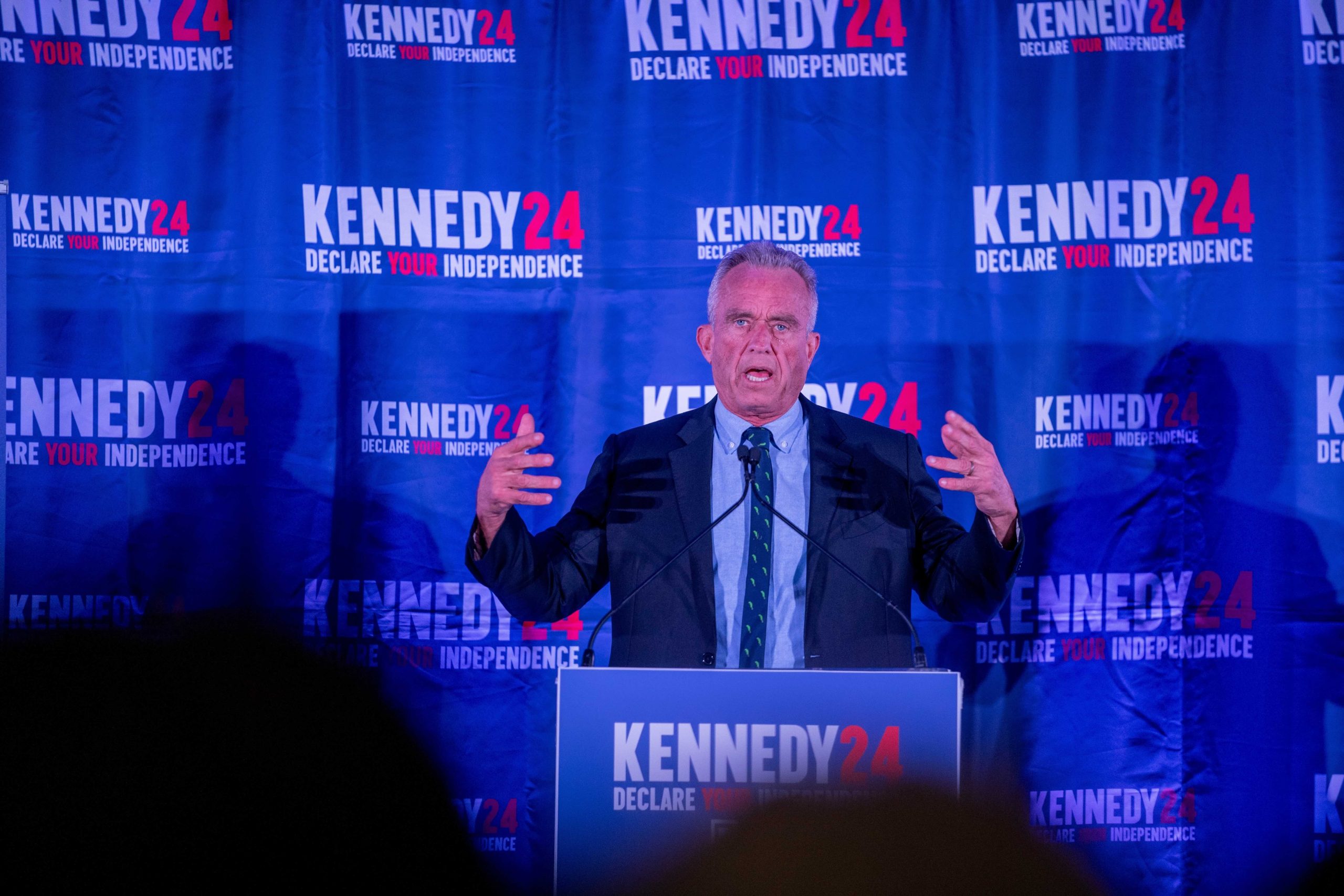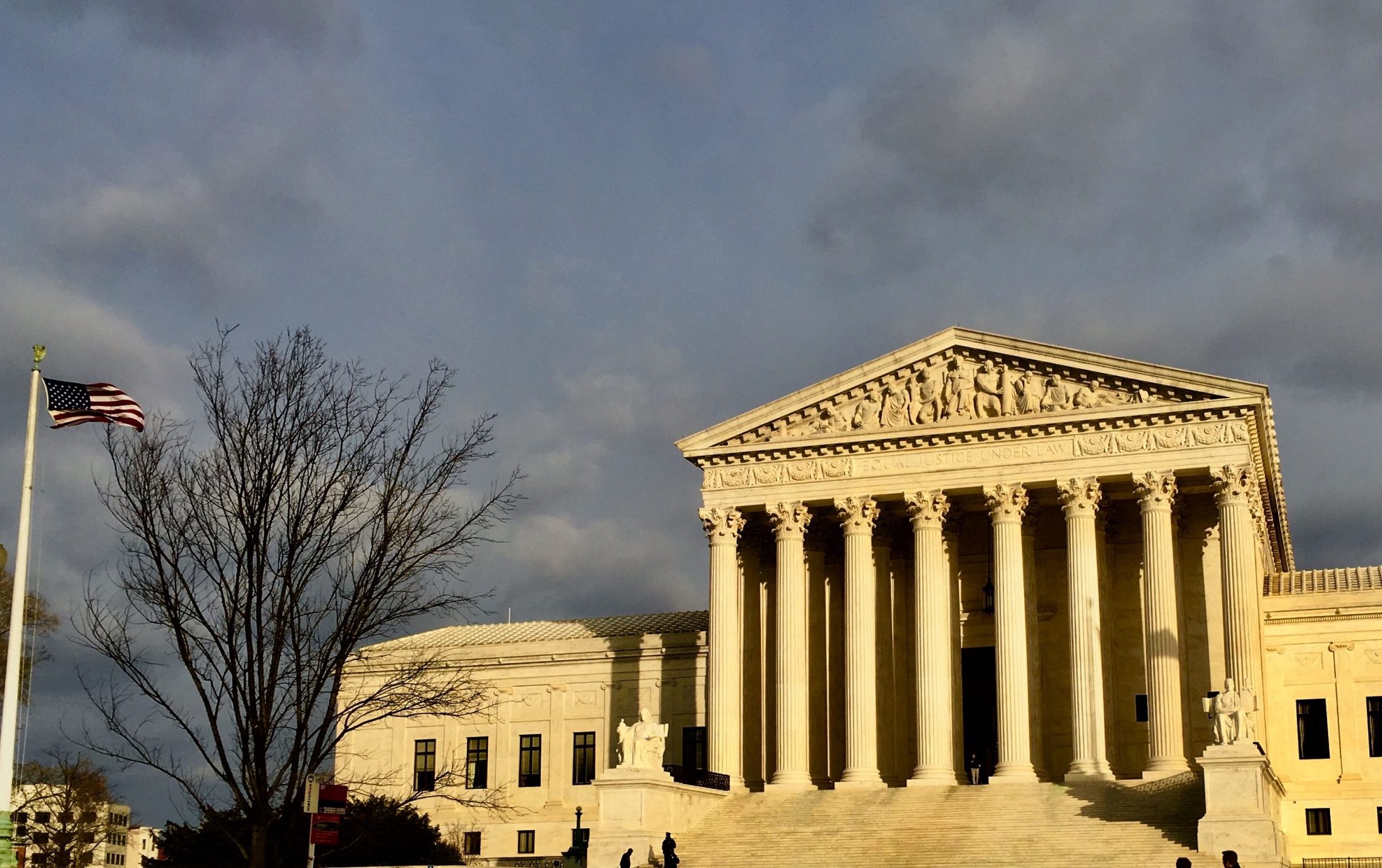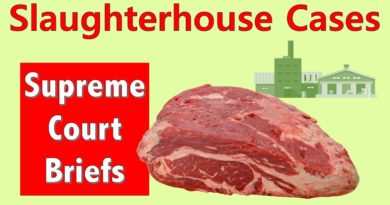Supreme Court denied RFK Jr. a spot on New York ballot
EMERGENCY DOCKET
on Sep 27, 2024
at 3:39 pm
Then-candidate Robert F. Kennedy Jr. at a campaign event earlier this year. Kennedy suspended his campaign in August and endorsed Donald Trump. (Bryan Regan via Shutterstock)
The Supreme Court on Friday denied a request from the campaign committee for Robert F. Kennedy Jr., to reinstate him to New York’s ballot for the 2024 presidential election. Kennedy suspended his campaign and endorsed Donald Trump in August. A New York court had ordered the state’s board of elections to strike him from the ballot because Kennedy – who lives in California – had used an address in New York in his filing papers, but Kennedy had dismissed the address requirement as a technicality and argued that excluding him from the ballot would violate the constitutional rights of those voters who continue to support him.
The denial came in a brief unsigned order issued on Friday afternoon with no recorded dissents.
Kennedy announced his run for president – first as a Democrat, then as an Independent – in 2023. His campaign submitted the required number of signatures to appear on the New York ballot. After certifying that the signatures were valid, the state’s board of elections voted to put Kennedy on the ballot.
Several voters, backed by Clear Choice Action, a group aligned with the Democratic Party, went to state court to challenge Kennedy’s placement on the ballot. They claimed that Kennedy listed his residence as a house located in Katonah (N.Y.), where he rents from a childhood buddy The New York court ruled that Kennedy’s address on his petition was a sham address he used to maintain his voter registration in New York On Sept. 11, one day after the state’s highest court rejected his appeal, New York’s board of elections certified a ballot for the November election that did not include Kennedy’s name.
Kennedy’s efforts to seek relief in federal court were also unsuccessful, prompting him to come to the Supreme Court on Monday, seeking to be placed on the ballot. He pointed to the Supreme Court’s 1983 ruling in the case of independent presidential candidate John Anderson, who met the substantive requirements for appearing on Ohio’s general election ballot but had failed to file by the March deadline.
In Anderson’s case, the justices held that Ohio’s March filing deadline burdened his supporters’ freedom of choice and freedom of association, and that the impact of those burdens “unquestionably outweigh the State’s minimal interest in imposing a March deadline.”
Here, Kennedy’s campaign and supporters argued, although the Ohio filing deadline may have advanced important interests, the “address of Kennedy’s petition was and is entirely immaterial — both to voters and to New York” — when it comes to his run for the presidency.
Kennedy’s campaign and supporters contended that the address requirement also violates the provision of the Constitution that outlines the only requirements to serve as president – for example, being a natural-born U.S. citizen who is at least 35 years old. New York insisted that states like New York could not impose a residency requirement.
New York told the justices that it was already The deadline to certify ballots passed two weeks ago, New York Solicitor General Barbara Underwood wrote, while “tens of thousands of ballots” have already been sent out to military and overseas voters.
Returning Kennedy to the ballot “would not only severely disrupt the State’s electoral processes and trigger substantial voter confusion,” but also cause New York to miss federal deadlines for mailing overseas and military ballots and potentially disenfranchise voters who receive and vote the original ballot.”
Moreover, New York added, the Kennedy campaign has already litigated, and lost, these issues in state court, which means it cannot now raise them in federal court.
Kennedy also will not be harmed – one of the criteria for the Supreme Court to intervene – if he is not reinstated, the state continued, because he has suspended his campaign. The state pointed out that Kennedy is “litigating” to remove his name on many States’ general elections ballot.
The Kennedy campaign The 100,000-plus voters who signed the petition to have him placed on the New York ballot “have a constitutional right to have Kennedy placed on the ballot and to vote for him, whether he is campaigning for their vote or not.”
The court’s order denying Kennedy’s request to be reinstated to the New York ballot came one week after the court left in place a ruling by the Nevada Supreme Court that kept the Green Party off that state’s ballot for the 2024 elections.
This article was originally published at Howe on the Court.






